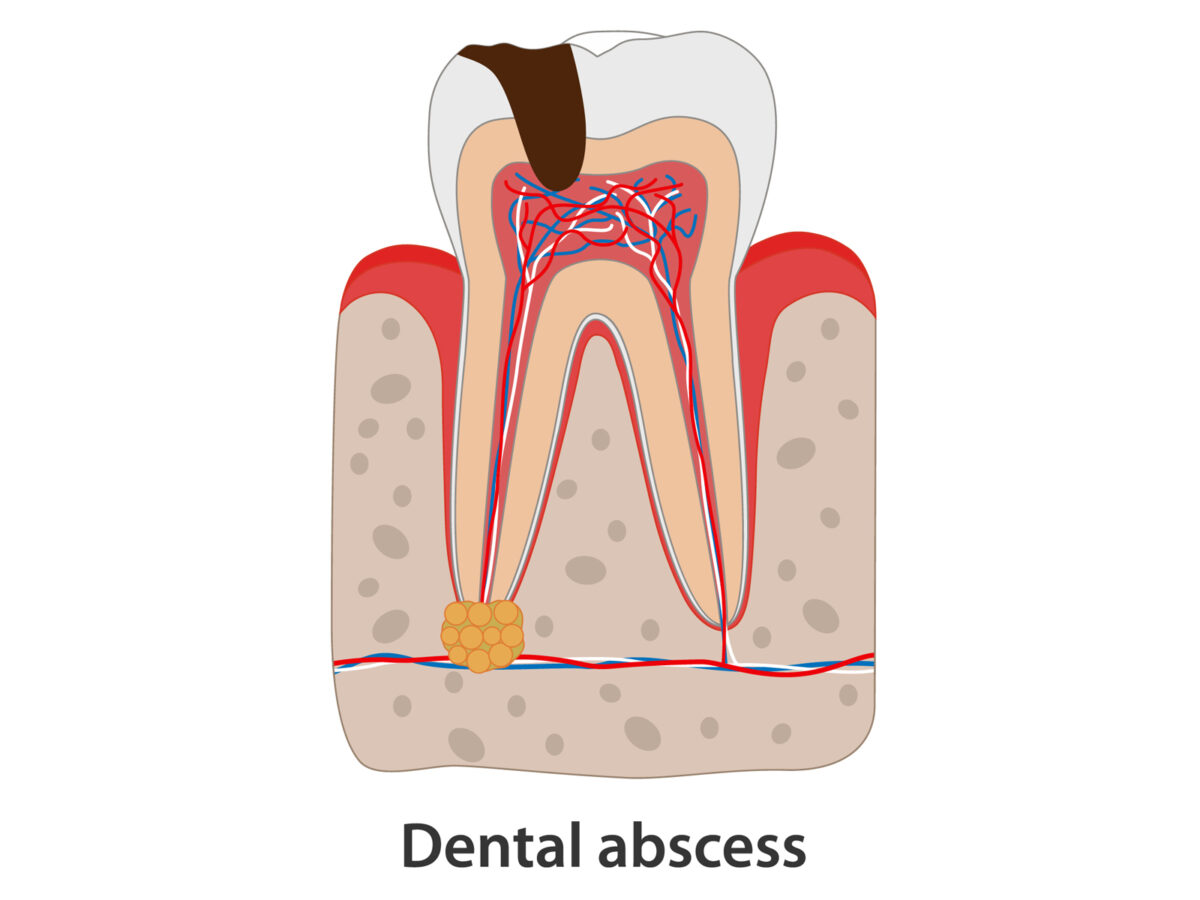Blog
Dental hygiene tips for healthy teeth & gums

How Long Can a Tooth Abscess Go Untreated?
One would feel inclined to delay seeking medical attention because of fear, cost, or even inconvenience. However, procrastination can have serious complications when it comes to a tooth abscess. Let us understand the risks of leaving a tooth abscess and why it requires timely medical attention.
Understanding Tooth Abscess
Before considering the risks of an untreated abscess, one must know exactly what an abscess is and how it is formed. A tooth abscess is a painful infection that begins with bacteria that invade the dental pulp. A dental pulp is a soft tissue inside your tooth that contains blood vessels, nerves, and connective tissue. An abscess is usually formed from the following issues with the tooth:
- Advanced Tooth Decay
- Fracture or Chip in the tooth
- Gum Disease
- Improperly done root canal
Bacteria inside the tooth multiply, and then the inflammation/swelling forms. Pus develops and creates pressure, causing pain. Some more common symptoms include –
- Serious, persistent toothache
- Sensitivity to hot and cold foods
- Pain when chewing or biting
- Swollen face or cheek
- Tender, swollen lymph nodes under the jaw
- Fever
The Dangers of Not Getting Treatment
Although very tempting, the wait-and-see approach with an abscess has life-and-death risks associated. A tooth with an abscess will not get better without professional assistance. It will only worsen, and it may even cause potentially life-threatening complications.
Short-term Complications: days to weeks
- As the infection keeps on expanding, it will result in more severe pain that restricts eating, sleeping, or doing daily activities.
- The infection can spread to adjoining teeth, gums, and even facial bones, causing more diffuse damage.
- Symptoms of an abscess may be generalized and non-localizing, and if so, include difficulty swallowing or breathing.
- There is a remote possibility of the infection entering the blood flow and leading to a life-threatening condition called sepsis.
Long-term Complications: Weeks to Months
1. Absorption of bone: Due to the infection, the bone in the vicinity deteriorates. It is more probably to lead to the loss of the tooth and finally to a change in facial appearance.
2. Sinusitis: Abscess related to the upper teeth can move upwards and result in an infection of the sinuses, leading to sinusitis.
3. Brain abscess: This can result in a life-threatening condition if there are infections in the brain.
4. Systemic Health Issues: Chronic dental infections definitely relate to higher risks for cardiovascular disease, problems with diabetes, and other systemic diseases as well.
Treatment Options
The good news is that tooth abscesses can be treated. This treatment will be based on how bad the infection is and the location of the abscess. Treatment options include :
1. Abscess Drainage: The dentist will excise a small part of the abscess to drain out the pus from the infected tooth.
2. Root Canal Treatment: This is done to remove the infected pulp and thus save the remainder of the tooth structure from destruction.
3. Tooth Extraction: In severe cases, due to the inability to save the tooth, it may need extraction.
4. Antibiotics: Some might get prescribed to fight a more generalized infection, especially when it has already spread from the abscess site.
Preventing Tooth Abscesses
While fast treatment is imperative for already present abscesses, prevention is always the best course. You can reduce the possibility of a tooth abscess by the following measures:
- Practice good oral hygiene (brush twice a day and floss)
- Use fluoride-containing toothpaste and mouthwash
- Avoiding sugary foods/drinks
- Quit smoking
- Having regular check-ups and cleanings from your dentist
In the event of tooth abscesses, minutes matter. Understandably, nobody wants to visit a dentist, but the danger of an untreated abscess far outweighs any transient discomfort or inconvenience to its treatment. If left untreated, an abscess can cause severe pain, diffuse infection, and even life-threatening complications.
If you think you might have an abscessed tooth, don’t wait. Call your dentist immediately to get an assessment. Remember, the sooner you treat your condition, the better it is for not only curing the immediate problem but also averting other serious health issues shortly. Your oral health is part of your general health, and the attention given to quick action on dental problems is an investment in health and quality of life.


